Wenshen Xu
RoleInteract: Evaluating the Social Interaction of Role-Playing Agents
Mar 22, 2024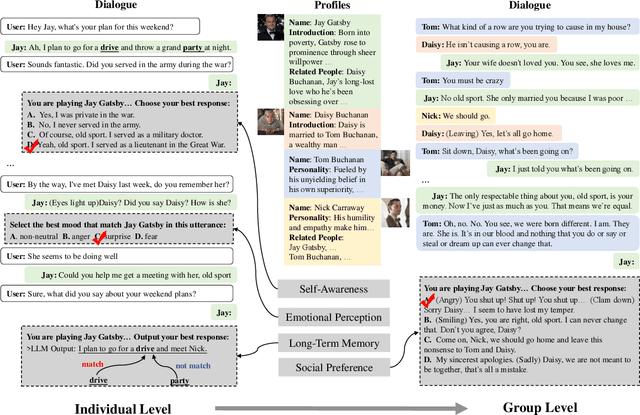

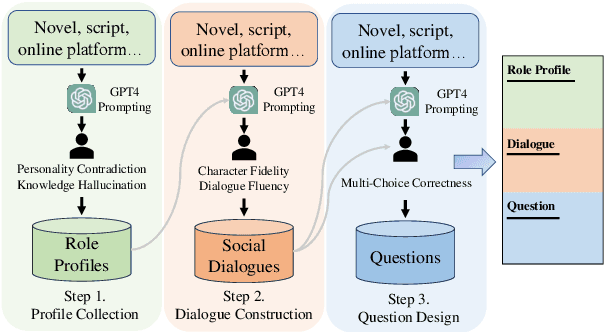
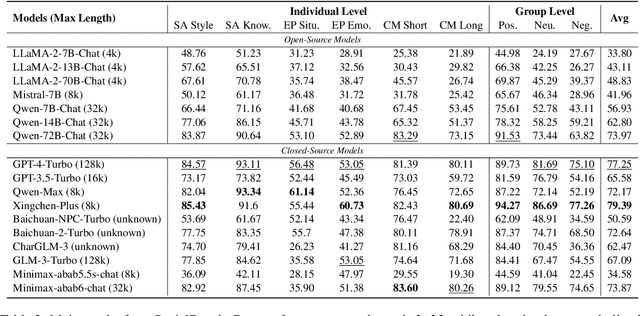
Abstract:Large language models (LLMs) have advanced the development of various AI conversational agents, including role-playing conversational agents that mimic diverse characters and human behaviors. While prior research has predominantly focused on enhancing the conversational capability, role-specific knowledge, and stylistic attributes of these agents, there has been a noticeable gap in assessing their social intelligence. In this paper, we introduce RoleInteract, the first benchmark designed to systematically evaluate the sociality of role-playing conversational agents at both individual and group levels of social interactions. The benchmark is constructed from a variety of sources and covers a wide range of 500 characters and over 6,000 question prompts and 30,800 multi-turn role-playing utterances. We conduct comprehensive evaluations on this benchmark using mainstream open-source and closed-source LLMs. We find that agents excelling in individual level does not imply their proficiency in group level. Moreover, the behavior of individuals may drift as a result of the influence exerted by other agents within the group. Experimental results on RoleInteract confirm its significance as a testbed for assessing the social interaction of role-playing conversational agents. The benchmark is publicly accessible at https://github.com/X-PLUG/RoleInteract.
ChatPLUG: Open-Domain Generative Dialogue System with Internet-Augmented Instruction Tuning for Digital Human
Apr 28, 2023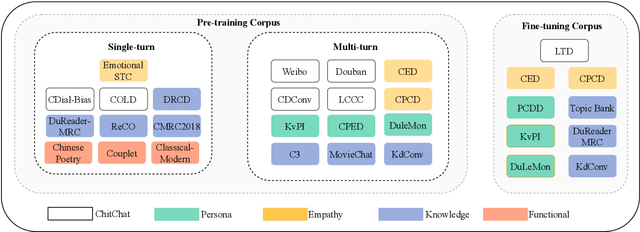

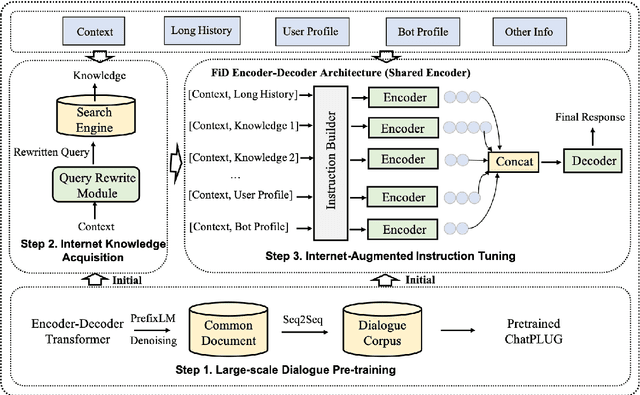
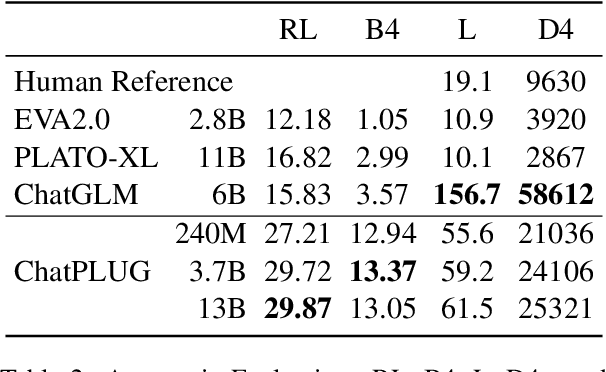
Abstract:In this paper, we present ChatPLUG, a Chinese open-domain dialogue system for digital human applications that instruction finetunes on a wide range of dialogue tasks in a unified internet-augmented format. Different from other open-domain dialogue models that focus on large-scale pre-training and scaling up model size or dialogue corpus, we aim to build a powerful and practical dialogue system for digital human with diverse skills and good multi-task generalization by internet-augmented instruction tuning. To this end, we first conduct large-scale pre-training on both common document corpus and dialogue data with curriculum learning, so as to inject various world knowledge and dialogue abilities into ChatPLUG. Then, we collect a wide range of dialogue tasks spanning diverse features of knowledge, personality, multi-turn memory, and empathy, on which we further instruction tune \modelname via unified natural language instruction templates. External knowledge from an internet search is also used during instruction finetuning for alleviating the problem of knowledge hallucinations. We show that \modelname outperforms state-of-the-art Chinese dialogue systems on both automatic and human evaluation, and demonstrates strong multi-task generalization on a variety of text understanding and generation tasks. In addition, we deploy \modelname to real-world applications such as Smart Speaker and Instant Message applications with fast inference. Our models and code will be made publicly available on ModelScope~\footnote{\small{https://modelscope.cn/models/damo/ChatPLUG-3.7B}} and Github~\footnote{\small{https://github.com/X-PLUG/ChatPLUG}}.
Auto-MLM: Improved Contrastive Learning for Self-supervised Multi-lingual Knowledge Retrieval
Mar 30, 2022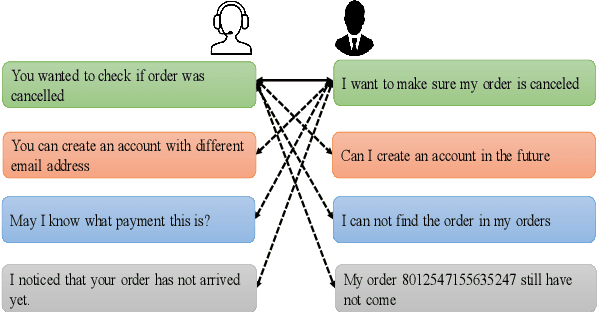

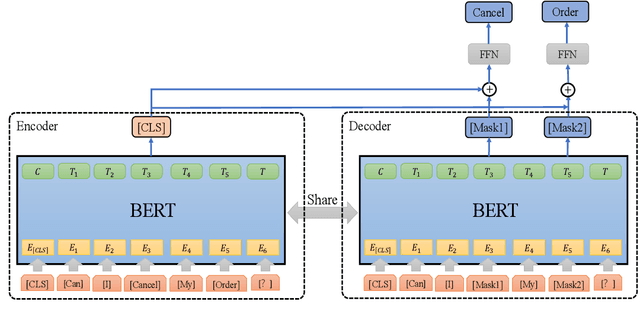

Abstract:Contrastive learning (CL) has become a ubiquitous approach for several natural language processing (NLP) downstream tasks, especially for question answering (QA). However, the major challenge, how to efficiently train the knowledge retrieval model in an unsupervised manner, is still unresolved. Recently the commonly used methods are composed of CL and masked language model (MLM). Unexpectedly, MLM ignores the sentence-level training, and CL also neglects extraction of the internal info from the query. To optimize the CL hardly obtain internal information from the original query, we introduce a joint training method by combining CL and Auto-MLM for self-supervised multi-lingual knowledge retrieval. First, we acquire the fixed dimensional sentence vector. Then, mask some words among the original sentences with random strategy. Finally, we generate a new token representation for predicting the masked tokens. Experimental results show that our proposed approach consistently outperforms all the previous SOTA methods on both AliExpress $\&$ LAZADA service corpus and openly available corpora in 8 languages.
 Add to Chrome
Add to Chrome Add to Firefox
Add to Firefox Add to Edge
Add to Edge